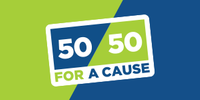- Intoxication is the cause of 40% of all boating fatalities.
“Boating is such a wonderful, multi-faceted activity, something for the whole family, but it demands your attention,” said Ian Gilson, Director with the Canadian Safe Boating Council. “Oftentimes, if you're impaired, you end up doing things, taking risks that you wouldn't necessarily consider doing. We certainly recommend that people leave any intoxicating substances until they return to shore."
Gilson adds that intoxicating substances include prescription narcotics and cannabis.
“We are, as are the enforcement bodies and also the search and rescue bodies, really concerned about the impending legalization of recreational cannabis and also the growing issue around the use and abuse of prescription narcotics,” he said. “So the stance is, that no amount of any intoxicating substance is legal or recommended either before you go out or while you're out."
In fact, he noted that you can get a DUI if you’re driving a boat under the influence of any intoxicating substance.
“In many provinces across Canada, if you get convicted of a blood alcohol concentration of .08 or over, you will lose your car driving privileges for up to a year,” he said.
“Impaired boating is impaired driving,” he added. “It's the same thing on land in a car and on a boat now, so you better be aware of those penalties and act accordingly."













